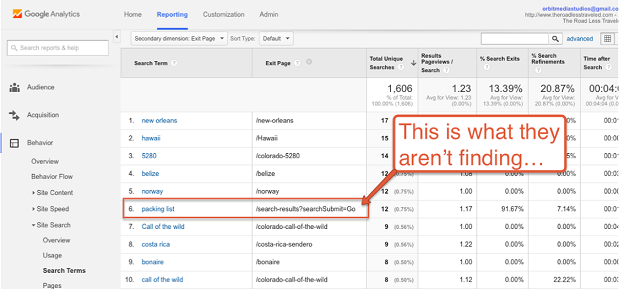Everyone wants to rank at the top of Google, but there are only so many main page organic listings available. Even when you consider how wide range and various long-tail keywords can be, it’s still a challenge to secure first-page placement.
With so many options for getting traffic and reaching new audiences, is Google SEO still the biggest attraction in town? This is something we wanted to find out, so we reached out to over 60 different SEO experts, bloggers, site owners, and online marketers to get their thoughts.
Here’s what they had to say… and where they are also focusing their efforts.

Google SEO: Should it be your main focus of interest?

The simple answer is… Yes.
Why? Because having run numerous SEO campaigns when delving into the data, in most cases, 97% to 100% of our client’s organic website traffic naturally comes from Google.
For me, it makes little sense to give much energy to the smaller search engines such as Yahoo and Bing, when they collectively only drive a very small percentage of overall organic traffic.
However… that’s not to say I blindly ignore every other search engine apart from Google.
I’m always evaluating the market and seeing how people are searching for products and services.
As an SEO specialist, I see my role evolving in having to learn new platforms and technology, due to the way consumer behavior is rapidly changing.
For example, in my opinion, Google’s biggest threat is not necessarily from other “traditional” search engines like Yahoo or Bing but other tech giants such as Amazon, who through the introduction of home automation devices (Alexa) is changing the way we search, consume and buy.
When it comes to SEO, Google should continue to be your main focus but always be quick to spot search trends, to makes sure your time and efforts are being put in the right place.
Charlie Travers – Finetune Digital
_

Most internet marketers are so focused on ranking on Google that they seem to forget that there are also other search engines out there. Keep in my mind that there are higher conversions for the traffic from Bing and Yahoo because their users are a part of the older demographic, so they have a better financial situation and afford to spend more. So if your site is targeting senior citizen, you definitely must not ignore Yahoo and Bing.
Even if your audience is millennials, it’s best to optimize your sites for all search engines, not only for Google.
Here are a couple big differences between Google and Bing that you should be aware.
Bing cares more about social signals than Google. Don’t think that you need to take extra efforts to be active on social media just for Bing SEO. Getting social shares means getting more traffic, so even if Google says (although many SEO experts doubt that) that social signals aren’t a ranking factor, still social shares are beneficial.
Also, meta keyword tags aren’t crucial for ranking on Google like they were in the past, but they will help a lot to rank in Yahoo and Bing. Don’t neglect meta keywords but don’t abuse them either.
There are more differences between these three search engines, but they are more similar than you think. Even if something is not relevant anymore for ranking on Google, but it is for Yahoo and Bing, if you apply that strategy correctly, it will not negatively impact your place on Google SERPs’.
Minuca Elena – MinucaElena.com
_

When focusing on your site’s SEO efforts, is Google your only focus? (ie: Bing/Yahoo, and provide reason) – For sure not! What about YouTube!? It is the 2nd largest search engine and super easy to rank there. I leverage YouTube and Facebook LIVE to reach an audience and connect with them in a personalized way that I do not think a blog post can ever do 🙂
Rafi Chowdhury – Chowhury’s Digital
_

As Google is usually 90%+ of traffic in Australia we focus mostly on Google.
That being said we still ensure websites are optimised for Bing. Most ranking factors are similar in Google & Bing.
It is important to ensure you have both Google Search Console and Bing Webmaster Tools set up so you can monitor search performance and indexing. Sign up here
Bing does still place more emphasis on some factors such as Exact Match Domains so it is important to monitor what works better on the different engines.
James Norquay – Prosperity Media
_

As Google controls 75% of worldwide search traffic (even more in the US), I tend to focus most of my SEO efforts towards Google, especially as most of my target audience uses this as their preferred search engine.
Jacob Cass – JustCreative.com
_

Google is still priority number one. Until someone comes along and takes a big market share away from them, there really is no reason to focus your SEO efforts in another area. However, if you are looking to spend some money, then there are definitely some better areas on the table. A good example of this would be if you wanted faster results and had a budget to spend, email marketing and lead generation is the way to go.
Tim Bourquin – Afteroffers.com
—

The short answer is “Yes”. There are two simple reasons.
The first, as I am sure 99 percent of entrepreneurs will tell you, Google delivers the most traffic. Not just the most, but overwhelmingly the most at almost 80% of searches.
The second is that for English searches there is little one can do to optimize for Bing or Yahoo or Duck Duck Go that would not also help with Google, and vice versa. If there was something one could do especially for Bing, it would likely be counterproductive for Google, and therefore not worth doing. If I wanted to capture the Chinese market, then I would do SEO specifically for Baidu, but that’s not my market.
The one thing I do, without investing a big effort, is optimize for image search. But, you guessed it, it’s for Google image search.
David Leonhardt – THGMWriters.com
_

While the worldwide market share of Google is high (92.06%), and that is reason enough as to why I and most marketers focus more on Google, it is nevertheless, important to remember that SEO is not just about Google.
Focussing all SEO efforts on just one platform can be detrimental to the overall business growth. Thus, it is important to have a strategic SEO campaign that takes into consideration all the search engine platforms be it Google, Yahoo or Bing.
The idea behind search engine optimization is to provide users with an enhanced user experience when browsing the website and by limiting the optimization process to only one platform, you are losing out on search traffic from other search engine sites. Hence, diversifying your SEO efforts to be inclusive of all search engines is the best SEO practice for 2018 as this will enable you to achieve greater brand visibility, leading to more organic traffic and a higher conversion.
Nirav Dave – NiravDave.com
_

Google is not my only focus with my SEO efforts, but it does account for about 90% of it.
You’ve got to put yourself in Microsoft’s shoes – Google is the #1 player, has by far the most data about people’s web browsing experiences, and it’s fair to say they have the best algorithms in place as well. For the most part, any effort we make to improve our Google rankings is also going to aid us when in our attempt to rank in Bing and Yahoo as well.
The sad thing is, I’m not sure anybody will ever be able to catch up to Google. They’ve simply got the better product, and there’s only so much that Microsoft can do. Google knows far more about us than what we seem to realize, and Microsoft has no way of capturing that data quite as effectively. As Google tailors searches more and more to the individual using their platform, the differences are going to become even more significant.
They know the websites we visit, and where we typically go afterwards. They know the videos we watch. They know the secrets we don’t want others finding out about. They know our medical issues. They know who we’re talking to and what we’re talking about. They know the products we’re interested in. The places we frequent. Our friends. Google can even predict when we’re going to get sick.
If you ask Google to export the data they have stored for you, it will warn you that it could take days to complete. Yes, days – even if you choose not to export your email. And not only do they have more data than you’re able to export, they have the resources to piece it together and form connections with it – and then apply it to their products.
So although Google, Bing and Yahoo may share many of the same technical factors when it comes to ranking, Google will only pull further ahead as time goes on. While I’ll always continue to check Bing’s webmaster tools and correct any errors, creating outstanding content that solves the searcher’s problem will continue to be my primary focus.
James McAllister – Starlight-Baby.com
_

Being the world’s top search engine, our SEO efforts are focused on Google, as that is where an overwhelming majority of the traffic is. This is also evident in The Philippines, where Google is the go-to search engine and is mostly the first search engine that users would access. Data-wise, Google provides the highest amount and ensures that you would be able to get results of the highest quality. Google keeps our operations running smoothly and efficiently, which allows us to create some of the best SEO Strategies.
Sean Si – SEO Hacker
_
 If you are going to be focusing on SEO, then YES… Google is the almighty one.
If you are going to be focusing on SEO, then YES… Google is the almighty one.
However, SEO is no longer the only game in town. Instead of telling you to just focus on Google, I would say to be the best at whatever you are the best at. For example, the amount of users on Instagram, Facebook, and Twitter can quickly devour any traffic amounts you might receive from organic SEO rankings.
Discover the many different ways to get traffic to your site, then which best applies to your marketing efforts and goals.
Hiroshi – Blog Ninja
_

Because we are a New Zealand based agency, our clients mostly target users in New Zealand and Australia. In this part of the world, Google reigns supreme, so we don’t typically bother optimising for other search engines.
We recently conducted original research on search engine usage in New Zealand (using our own client accounts for the sample) and based on our findings, 97% of Kiwi searches are now conducted with Google. In the US and the UK, Google has a considerably smaller market share (about 63% and 83% respectively). So while it may make sense to put some focus on optimising for Bing and Yahoo in other markets, in New Zealand, Google is all that really matters.
Having said that, we do occasionally sign on clients who are interested in international markets, and for these clients, we are more conscious about the influence of other search engines. The most important thing is to understand the audience you are targeting, look at what search engines they are using to access your website (via Analytics), and make optimisation decisions based on that data.
Brett Langlois – Pure SEO
_

While Google certainly refers the majority of internet traffic, it’s still important to remember other search engines, as you never know where a lead may come from. The good news is that when you hit the important points to rank well with Google, you’re going to be hitting them for the other search engines as well.
Though other search engines may not yet go to the lengths that Google does to utilize additional website data, such as schema, you’ll still see great benefits from core SEO practices. Quality content, keyword density, correct site-structure, and more, will all lead to ranking well across all search engines.
While you’ll still want to setup webmaster accounts with Yahoo and Bing (along with submitting your sitemap to each), there’s not a whole lot of extra work needed to feed all search platforms. If your SEO is solid, you should be in a good place anywhere people choose to search.
Ben Brausen – BenBrausen.com
_

When doing SEO – both on-page and off-page I always consider other search engines like Yahoo and Bing apart from Google. While Google is still the most popular, most commonly used and attention grabbing search engine, I know a lot of people still prefer either Yahoo or Bing over Google while performing their searches.
The reasons could be many – Google’s privacy settings, tracking and many other things can be itching people. So they opt for alternate search engines.
And in order for my business to perform well in those search engines as well I have to make sure that I have it optimised for the other search engines too.
The very basic thing any website owner can do is to create the website property in Bing Webmaster tools, submit the sitemap and do the necessary stuff. That would suffice for most small scale business websites.
Having said that, Google still is the major focus to me since it is preferred by the masses.
Jane Sheeba – Learn.Jane Sheeba
_

So, all three search engines—Google, Yahoo!, and Bing—are using the same ranking signals to determine the ranking for websites in their search engine results. So, as long as you are using white hat and organic ways to gain back ranks, optimize content on your website, make sure to optimize the meta-tags on your website, you should be seeing improvements on all three search engines. Yes, for Google it might come slower because Google has sophisticated search engine algorithms. Whereas, Bing and Yahoo! are still trying to catch up using slightly different ways and different methods and tactics, but in the long-term, within a year or two, you should be fine. You should have pretty much the same ranking across all those three search engines and it should be fine.
Mike Khorev – I Know SEO
_

I focus on Google for all SEO efforts. Till date, based on analytics it is the top search engine which contribute 90%+ traffic to my blogs. That’s why I focus more on Google as compared to Yahoo/Bing. I’m confident that if I rank well in Google, chances are my posts will also perform better in Bing or Yahoo. Google search engine is getting really really smart. That’s why it is the giant of internet. So, rather than focusing on individual search engine, I give all my efforts to ranking higher in Google.
Ammar Ali – All Blogging Tips
_

I primarily focus on Google and Google only. Here’s why:
- Google is undeniably the leader in the search engine market share. GlobalStats data shows that as of December 2017, Google dwarfs all other search engines (Bing, Yahoo, Badu, etc.) by retaining a massive 92% of the current search engine market share.
- Google offers better conversion rate as their traffic are better targeted.
- A better ranking on Google will have a trickle-down effect on other search engine sites (i.e. high ranking in Google, you’ll get high ranking on Bing). So it doesn’t make any sense to implement specific studies / campaigns elsewhere.
Jerry Low – Web Hosting Secret Revealed (WHSR)
_

At Mod Girl, we focus primarily on increasing Google rankings for our own websites and our clients websites. With over 90% of search engine market share worldwide, Google takes the cake for most searches. Therefore, it only makes sense for us to focus the bulk of our SEO efforts on SEO. Plus, we’ve found that by focusing our efforts on Google, it also helps with our rankings in Bing and Yahoo.
For example, right now in Google we rank #1 for “white label online marketing.” We also rank #1 for that same keyword in Yahoo, and we rank #3 for that same keyword in Bing. So across the 3 search engines we see similar rankings for our focus keywords, even though our SEO tactics are primarily centered around increasing Google rankings.
Mandy McEwen – Mod Girl Marketing
_

There is more to search than Google. You can make a fortune if you understand the other algorithms, including iTunes, Amazon and YouTube. But here’s an underrated search tool that everyone should pay attention to… the site search tool on your own website!
You can see everything that people type into the search box on your site, as long as you set up Google Analytics properly (there’s a video with instructions here if you haven’t done this yet). Check out the Behavior > Site Search > Search Terms report to see what people are looking for. Now search for each of those phrases yourself. What’s ranking? Are your pages optimized for these phrases? Do you have any gaps in your content? Should you change the labels in your navigation?
Better yet, add “Exit Pages” as a secondary dimension to this report and you’ll see where people leave the website. Are people leaving from the search results page? If so, they probably aren’t finding what they’re looking for. Here’s what it looks like for a travel website. People search for “packing lists” …and then leave without clicking anything. Why? The site doesn’t have any packing lists! It’s a content gap.

Andy Crestodina – Orbit Media
_

Yes, because Google is THE major search engine and that’s where the pool/volume of search is. Whatever Google says regarding their algorithm updates, I try to comprehend and analyze in SEO perspective.
Over the years I’ve noticed it that even though Yahoo/Bing and other competing search engines have different algorithm, these major search engines would eventually follow once you optimize your site for Google search and ranking.
Fervil Von Tripoli – FervilVon.com
_

Heavens, no. Sure, Google is the One Engine to Rule Them All but it’s not the only game in this digital town. Putting all your SEO eggs in one search engine basket is an unnecessary risk. I’m not advocating equal time or effort but it pays to keep an eye on your results in Bing, at least and sign up for Bing’s Webmaster Tools the same as you would with Google.
Annie Sisk – Pajama Productivity
_

I think this is something every SEO should determine on a site-per-site basis. Personally, due to time constraints I tend to focus primarily on Google. A lot of times, when it comes to optimizing both on-site SEO and off-site, the same methods apply to all search engines. Looking at your current Google Analytics data can also be helpful to see where your current organic traffic is coming from, and what the conversion rate it is.
If you’re already having success with Google SEO, than I would advise people not to waste time on the other search engines. There is definitely less competition on those search engines, but also significantly less search volume as well. A lot of the sites I work on get over 70% of their traffic from Google, Bing usually comes in at around 1-2%, and Yahoo at under 1%.
There are great tools like Accuranker that allow you to keep track of your keyword rankings across the different search engines. When it comes to SEO, I always advise people to experiment and once they find out what works best for them, to simply build on that.
Brian Jackson – Kinsta.com
_

Google certainly has the most market share, but I wouldn’t solely focus on it. Yahoo! and Bing are very important if you have an older or more financially stable audience. Specifically, usage of these other search engines is higher in those groups because they are typically less tech-savvy older adults or aging seniors who simply don’t know how to change their default search engine to Google. By default it is set to Bing on Microsoft’s PCs and devices!
Harris Schachter – OptimizePrime
_
Google is still the holy grail for high-quality traffic and getting users to your site who are ready to convert. It’s also one of the biggest mediums out there for allowing indivduals and big brands to compete on a level playing field where quality content and outreach go head-to-head. Anyone can rank at the top of Google for long tail keywords, and it should be a main focus for everyone. Also, when it comes to Google versus Bing, DuckDuckGo or any other sites, it’s obvious the answer is to focus all of your efforts on Google, then the rest will fall into place.
Srish Agrawal – Logodesignteam.com
—

Instead of just focussing on “what is the best SEO for Google”, I try to write articles that are the best for my readers. This means I follow practices that improve the clarity of my writing, including using relevant keywords, breaking up large text blocks with headers, bullet lists, links to additional resources and more. Here is an example post about how to get a free mattress that consistently delivers organic traffic to my site. I believe this practice of focussing on the reader is the best way to future-proof your site for SEO purposes.
That being said, I do recognize the value of optimizing my site and posts with current best practices. One example is that I use Google Search Console to test page titles for the highest click-through-rate; in the past I’ve raised important pages on my site from a CTR of 1 or 2% up to 5% or higher. While it’s not guaranteed that this optimization will perform identically across all search engines, I believe that the audiences are similar enough that the CTR will be similar and so will the corresponding boost to SEO performance. Here is one example of a page I’ve improved the CTR on.
Michael Alexis – MichaelAlexis.com
_

As of right now, I’m most concerned with SEO in terms of optimizing for Google for my own websites. That said, there are certainly differences between how the other top search engines rank content that may affect your resulting SEO strategy. I wrote an article for the Marketing Daily Advisor that digs into the finer need-to-know details.
The good news is that, in most cases, you don’t have to change a lot to rank on Google and Bing (not 100% sure about Yahoo – I honestly haven’t investigated it in as much detail). Furthermore, optimizing for Bing is a definite win if you cater to an affluent audience, as this particular characteristic represents the average Bing user. It doesn’t hurt that there’s not as much competition when it comes to optimizing specifically for this lesser-known search engine!
Maddy Osman – The Blogsmith
_

Truthfully I focus my SEO efforts primarily on Google because 80%-90% of users are using Google search engines rather than Bing/Yahoo. I think it’s useful to know where your site is ranking on other search engines as well, but my big SEO decisions are based on Google algorithms and updates. this is especially important when you’re talking about your paid traffic strategies. I would much rather spend my marketing budget on Google where I know most of my Target audience sits.
Madeleine Taylor – Content Refined
_

Google is our main focus since that is where we see conversions and the most search traffic. However with our primary platform being Windows for Mailbird, Bing search is another big player for us and after a few tests we still find that Google performs much better. Look to see if your target audiences are using Google, Bing or Yahoo to search then conduct some SEO tests around the target platforms.
Andrea Loubier – GetMailBird.com
_

People are the focus. It always comes back to people whichever way you look at it. The technical side of SEO is explaining your website to all the search engines so that people get to see you in the results. On the content side you need to be answering the questions and solving the problems that people have, this is what they are searching for.
Search is diversifying and it will diversify more in the future. We now find the information we want from many places; Google, Bing, YouTube, Amazon, Alexa, Siri, Cortana, Google Home, Quora… this list goes on.
What matters is that you’re creating online content that people actually want and creating this content in many formats.
Here’s an example. Your washing machine pump goes wrong. You search Google for “How to fix a washing machine pump” and get a bunch of YouTube videos showing you how to clean/replace the pump. Some of them offer links to places you can buy new pumps, some offer pumps for sale. Another example is to ask Cortana where the nearest Pizza Place is. She tells you, with maps, directions, opening hours etc.
All of these results can be generated by any search engine but the one constant is that someone has had to explain the answers in some form of web content be it a YouTube video, article or Google My Business listing.
Diversification is the key. Focus on creating content in many formats that people actually want then use the technical side of SEO to explain it properly to different types of search engine.
Search is everywhere.
Jon Tromans – Jtid.co.uk
_

I personally only focus on Google, especially since Firefox recently changed its default search engine to Google. I occasionally test Bing PPC and while you can get some impressions, its just getting smaller and smaller each year. There are also subtle differences. For example Google now shows almost 300 characters in the SERP description, while Yahoo and Bing are still showing about 150. Other than that, the only thing I can say about this is if you are optimizing for Google, you are optimizing for Bing most likely. Bing and Yahoo are more “spammable” than Google is, meaning you can get away with a lot more. I am in a lot of different SEO forums, private Skype groups, 1 on 1 chats, and read countless case studies and articles and rarely do I hear anything about Yahoo and Bing unless it is regarding PPC…even then it is rare.
Patrick Coombe – Elite Strategies
_

I focus only on Google. The worldwide market share they have is almost 90%. Furthermore, when you rank in Google’s top 10 results you usually rank high on other search engines as well.
Danny Donchev – Fortunelords.com
_

Google is a great SEO tool, but it’s not the most cost-effective. If your business has a large marketing budget, Google is a boon! For most startups, however, SEO diversity is a must. Yahoo gives startup access to multiple markets, especially those from which Google has been excluded, i.e. China. While Bing is another alternative, it doesn’t have the bite, luster and market penetration that Google and Yahoo have, so it’s last on my list. SEO cannot work in a vacuum, however. The content that it’s associated with has to captivate the audience, or else the SEO becomes a wasted expenditure.
Using other Google affiliated tools like YouTube and Google Plus puts your business front and center without needing you to part with any money on the front-end.
Cody McLain – SupportNinja.com
_

When focusing on SEO, we primarily focus our efforts on Google because it is the largest search engine in the world. The search volume that Bing / Yahoo makes up is relatively small. Also in my experience, I have found that when your site is optimized for user experience, then it does well across the board.
Syed Balkhi – WPBeginner.com
_

I’ve never been able to be very successful and drive much traffic with any of the other search engines. Google for all my projects has always been number 1 search traffic driver. By far. I guess it makes sense looking at the search usage percentages across the western world. Google pretty much has monopoly over much of the search market. So yes all my SEO efforts are always with Google in mind and all the other search traffic is just a side benefit.
Marko Saric – HowToMakeMyBlog.com
_

Yes, Google is my only concern for SEO. Why?
Google delivers 10 to 12 times as much traffic than Bing or Yahoo. Sure, I’ll take the Bing and Yahoo traffic, but if it disappeared it’s not a significant loss. If Google traffic disappeared, that is a significant loss.
Moreover, not that I’ve done any testing, but it seems whatever SEO efforts I put into Google traffic works for Bing and Yahoo. In other words, I would not choose to put time and resources into Bing or Yahoo without considering Google because the ROI simply isn’t there.
Jon Dykstra – FAT Stacks Blog
_

Personally and I am only speaking for me and those I work closely with regularly, Google is our focus.
Ted Rubin – TedRubin.com
_

This answer might be surprising… When we do SEO, we do focus on general search engine principles, with an emphasis on Google, since it gets the lion’s share of traffic for most of our clients… but we don’t do anything that will hurt Bing or Yahoo rankings. The surprising part is: we take Facebook into account too, in two main ways: #1 Facebook’s effect on search demand and #2 ideas for SEO content. Most companies rank for their brand names (their company or products), but not for category keywords (what kind of thing they are), and SEO is often focused on driving more category keyword traffic through increased rankings. But the awareness created by Facebook ads usually also leads to more searches for the company’s brand names, so we watch brand-name search-demand in the Google Keyword Planner as a way to see another positive effect of Facebook marketing. Also, when creating or commissioning new content that may help create SEO value (by attracting inbound links, for example), we take into account not just the right SEO keywords but also what has been shared most in social media on that topic. People share social content for the same reason that bloggers and webmasters link to webpages: they want their audiences to know about great content. Using a tool like Buzzsumo can help you at the content conception stage to create something that will have more SEO impact and drive more new traffic and sales in the end.
Brian Carter – The Brian Carter Group
_

We mainly focus on Google because that is where the majority of the traffic comes from. We believe in the Pareto Principle, where 20% of efforts yields 80% of results. We treat traffic from Bing and Yahoo as a bonus. If we were to operate in a market where Yahoo and Bing contribute a lot more to the business’s income, then we would consider it. The primary markets that we operate in (Australia and the United Kingdom) see Google as the major player.
David James – BusinessGrowthDigitalMarketing.com
_

Yes, when I optimize my posts for search engines Google is my only focus. Here’s why:
- Google wants our articles to be longer, at least 2,000+ words. Bing doesn’t care. 300 words would be okay with Bing.
So, why do I optimize for Google when clearly writing quality articles that long would take me hours of extra time? Ask yourself what readers would want. If I were a search engine user, I’d want a detailed solution. Articles that are guides, checklists, steps to follow, perhaps visuals to accompany the steps would help me. For Bing, a cursory answer would suffice. However, as a search engine user, it wouldn’t suffice for me. I couldn’t get enough information to help me. With a longer article, the reader can pick and choose what information they find relevant and use that. With a short article, there isn’t much information to choose from. - I don’t want to be penalized by Google for anything. Therefore, I read a great deal about Google penalties and I’m careful to avoid them.
- Google is pretty powerful. Are you aware Bing and Yahoo have combined advertising networks? Google Adwords didn’t combine with anyone. They didn’t have to. Google Adwords is the biggest advertising program in the world.
- When I look at my dashboard, I see from my statistics that most of my search traffic comes from Google. Many people tell me they find my blog on Google. I want to optimize for what works for me best.
Janice Wald – Mostly Blogging
_

As of right now, Google is my only focus. I don’t really focus on Bing/Yahoo for a number of reasons.
For one, Google sends easily the most traffic to my site. In the past month on my site, Google was my biggest referrer with over 73% of my referral traffic for December. Yahoo is my next biggest search engine referrer and it sends less than 0.5% of traffic, so it is a minuscule amount of traffic and on top of that in the last year Google is one of the biggest converting referrers, so I’m going to focus on that.
The second reason is that if you optimise for Google, the chances are you optimise for other search engines. Usually the same optimisation techniques for Google work on other search engines, but in terms of actually analysing data I only really take a keen eye in Google to make sure that everything is working.
Rhys Wynne – Winwar Media
_

Primarily, yes. But since there are similar ranking algorithms between Google, Yahoo, and Bing (even DuckDuckGo if you will add), there’s a high probability that what you do to optimize your site/page for Google, could possibly help your website rank as well in other search engines for the same target keyword. Content and links for all search engines, I think are solid foundations to help them check if your site/page deserves to rank.
Venchito Tampon – Sharprocket.com.ph
_

I’m going to be a bit of a contrarian here. The focus of SEO moves in stages, and each new stage widens the focus.
My first focus with SEO is going to be the user & user experience. Building useful, engaging pages that are valuable to visitors is first. Once the content & user experience is solid, I then begin focusing on-page and site-wide. The 80/20 approach here is: long, unique content with LSI keywords on a big site centered around a core theme – accented with on page basics (headings, unique images with proper alt text, media, page speed, etc…).
A bulk of the early-stage SEO is focused on Google, of course. In the spirit of 80/20, it makes more sense to pay attention to the lion’s share of traffic. Over time, if you’re doing what you should be doing with your website, you’ll gradually start optimizing for factors that Bing Favors. The most notable are social signals (Bing values these more than Google, as the lore goes).
Michael Erickson – Search Scientists
_

At Bowler Hat we focus our SEO efforts on Google. However, we don’t ignore other search engines like Bing and Yahoo. The reality is though what works for Google will often work for Bing and Yahoo and many areas like Schema mark-up are supported by all the major search engines. Ultimately, we see a far smaller percentage of traffic from other search engines and in most cases, the work we are doing for Google will deliver results for those engines as well. So, we don’t ignore them entirely, we rank track and monitor traffic from other engines but we rarely do something specifically for another engine as in most cases it is just not needed. I also like to use rankings from the big three engines as it gives us more data to better understand what is working. Probably the most frequent question we get at Bowler Hat, and one I answer on our blog is how long does SEO take to work? The more keyword data we have the better we can answer that question for our customers.
Marcus Miller – BowlerHat.co.uk
_

Currently I’m only focusing on Google. Not yet started focusing my efforts on increasing traffic from Bing or Yahoo. As they say 80/20 rule, Google holds 80% of search traffic so it’s always better to focus on what works instead of trying to capture new markets.
But for beginners, I might recommend using Bing for a reason. The competition is less so you can actually bring some visitors to new sites by doing the right kind of keyword research. Also make sure to focus on building links no matter where you’re focusing.
Anil Agarwal – BloggersPassion.com
_

It is a waste of precious SEO marketing time to focus on anything other than Google, if you are targeting UK search engine users. The stats from a reliable source about the main search engine market share follows: Google 83.7%, Bing 11.06%, Yahoo 3.83%. Given that some SEO technique used to get good ranking in Google, will not get you better ranking in Bing or Yahoo, why would you want to focus on any resources on optimising your site for the remaining 16% of the market share?

Evgeniy Garkaviy – Mydatech.net
_

Usually people focus on Google because it’s the biggest search engine. But there’s another reason why I focus on it; it likely does a better job of showing the best results than Bing/Yahoo. So, if you rank well in Google, you’ll usually end up ranking well in Bing and Yahoo, too, once they catch up in algorithms. And besides, Google has so much more volume that the marginal benefits you could get by optimizing specifically for Bing or Yahoo likely aren’t worth the extra effort. Of course, if you have a lot of time in your hands, go nuts—track all the search engines separately, optimize things based on individual results, and so on. But if you only have 24 hours in a day, you could use them better.
Peter Sandeen – PeterSandeen.com
_

My primary focus is Google. I haven’t looked into Yahoo, but I looked into SEO for Bing. I registered my website with Bing Webmaster Tools and looked into the issues it pointed out, but I still think doing any SEO for Bing isn’t worth the effort in my case.
Bing still recommends using exact keywords you are targeting whenever possible. But most of my posts are in-depth articles that explain a broader topic in detail. If I start using exact keywords enough times to make Bing happy, it will sound weird to my readers and will upset Google.
But most importantly, I think the majority of my target audience – small business website owners – uses Google. So this settled it.
Gill Andrews – GillAndrews.com
_

If you’re a small business, Google is the only search engine. When you’re looking at marketing with quick wins and putting your (limited) efforts into the best place, Google is the onbvious answer. You could certainly benefit from optimising for Bing and other search engines but when you’re not full time on your SEO, just pleasing Google makes a lot of sense.
Todd – Spaghetti Agency
_

At Hubstaff, our team focuses most of our site’s SEO efforts on Google. There is some merit in doing basic SEO on other platforms but we invest the majority of our time in the dominant market leader. We also find that most of our users are tech savvy and they tend to use Google over built-in toolbars or default browsers.
Jordyn Wegner – Hubstaff.com
_

If you have been optimizing your site for Google and not Bing, then, unfortunately, you are missing out a lot of unexplored opportunities over Bing. Studies show that Bing and Yahoo contribute to around 33.6% of the desktop searches. It is also found that Bing and Yahoo have been processing almost 80% of searches related to health care, education, automotive and telecommunications. And, the truth is that Bing traffic converts better than Google’s traffic. Here, are a few differences that show why you should consider optimizing for sites, such as Bing and Yahoo, while optimizing for Google:
- Keywords: Be smart when you choose your strategy for optimizing keywords. The Google and Bing difference- Google doesn’t care for exact match keywords as the intention is customer experience whereas Bing emphasizes on exact match keywords.
- Meta tag: While Bing considers meta descriptions and keywords as a powerful parameter for ranking, Google doesn’t bother.
- Backlinks: Bing gives a high weightage for link count along with factors, such as domain age, and considers extensions, including .org, .edu and .gov as genuine ones. With Google, authoritative backlinks and quality content are the two parameters for trust.
- Social signals: For Bing, social signals are a key ranking factor, while Google treats Facebook and Twitter among other indexed pages.
- Multimedia content: Google doesn’t crawl flashy sites and prefers text-based content. Bing emphasizes multimedia content and can crawl across flashy sites. Now, on the basis of these inferences, if you optimize the SEO of your site, you will surely be able to welcome people from all search engines.
Vipin Nayar – Acodez
_

Three reasons to focus on Bing and Yahoo! as well:
- Bing and Yahoo! combined drive 20% of all Search Engine Volume
- Older people are using Bing, they have more money and the chance they buy your product or service is higher.
- What I like for Bing is that smaller businesses have bigger chance there. You know that Google is giving a priority to big brands.
Actually Bing is also powering Yahoo!Search, and it makes it easier for SEO experts because they only need to optimize for 2 rather than 3 search engines.
Georgi Todorov – DigitalNovas.com
_

Nowadays we tend to focus on Google when it comes to SEO. There’s just so much overlap that from a time and money perspective, this is the approach that makes sense. But more than that, we’ve started focusing on CRO (Conversion Rate Optimization) where we consider “engagement metrics” the numbers we’re trying to improve. We’ve found that this tends to work well across all search engines (as long as we’ve covered the basics).
For example, we’re working on this contract templates category page right now. The first version is a little basic (but still useful) and gets us some data. We look at visitor behavior using tools like Hotjar to see how satisfied they are with that page. We iterate over and over (improving content and value) until we have a great page that both people and search engines like.
Going back to the question of whether we mainly optimize for Google, we optimize for the user, which what Google prefers, and just so happens to work well across the board.
Ruben Gamez – Docsketch.com
_

In terms of ranking, yes – because they own the market. What I’ve found over the years is if i’m doing well in Google, i’m doing well in the other search engines as well. Most of my SEO efforts are basically just following best practice guidelines. If my sites look nice, work nicely, and make my visitors happy – then the search engine is also happy. So my best advice here would be to do your due diligence and research best practices and brush up on the rules Google has in place and you should be in good shape after doing that for a while and generating worthwhile (good) content. If you focus on that, and creating great content then that along is a pretty powerful SEO strategy in my book. It doesn’t hurt to look into Bing/Yahoo/DuckDuckGo/Whatever and see what they are asking for to rank higher, if it is different than the big G it wouldn’t hurt to implement a few things but don’t waste a whole lot of time on it because chances are the traffic there is only a fraction of the traffic you’ll be getting from Google.
Andy Sowards – AndySowards.com
_

When we talk about the SEO, the very first word comes in our mind is Google. Google is still the search giant and dominates the search engine market. It is everyone’s dream to rank their website in Google. Actually every search engines including Google, Bing, Yahoo etc are using almost same algorithms and factors to rank website in their search engine result page.
I personally do not rely on Google only. I always prefer to diversify my traffic sources. Relying on Google can be disastrous for you because if you fail to comply a single terms then you might hit by a Google penalty and your ranking will drop drastically. The best example of this is Google’s New Maccabees update which basically hits sites that are using keyword variations and permutations to manipulate their rankings.
So, focusing on multiple search engines can be very effective to make a good flow of organic traffic to your website or blog. Bing and Yahoo indeed are good search engines and I personally get lots of visitors from these search engines which convert very well. Make sure that you create sites for users and not the search engine bots as this will automatically improve your site SEO as everything depends on your user experience.
Vishwajeet Kumar – Webmartnet – Digital Knowledge Portal
How to Effectively Rank Higher in Google with SEO
At the end of the day, there is nothing more we all want than to rank #1 on Google for our target keyword or search phrase. However, it just doesn’t happen. There is a lot of time, money, research, and dedication to making something like that happen.
Be sure to read through all of the expert tips above, and start implementing such methods into your own blog, brand, or online business.
Also, if you enjoyed this expert round up, be sure to read our previous ones on top recommended entrepreneur books and also 7 low cost site builders to consider when creating your next site.